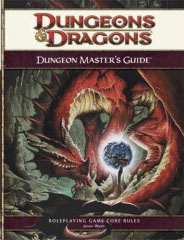DMG pp 73-5: "When a player’s turn comes up in a skill challenge, let that player’s character use any skill the player wants...."
This makes a PC being proficient at a skill irrelevant. You can't rationalize this kind of trash game design.
Have you read the 4e DMG? Have you ever run a skill challenge? Do you have much familiarity with the earlier extended conflict framework systems they are based on (eg from Robin Laws's HeroWars/Quest)?
The quote from p 73 of the 4e DMG is "When a player’s turn comes up in a skill challenge, let that player’s character use any skill the player wants. As long as the player or you can come up with a way to let this secondary skill play a part in the challenge, go for it." This is reinforced on pp 74-5:
You describe the environment, listen to the players’ responses, let them make their skill checks, and narrate the results. The skill challenge description outlines the skills that are useful for the challenge and the results of using them. . . .
You describe the environment, listen to the players’ responses, let them make their skill checks, and narrate the results. The skill challenge description outlines the skills that are useful for the challenge and the results of using them. . . .
In skill challenges, players will come up with uses for skills that you didn’t expect to play a role. Try not to say no. . . .
However, it’s particularly important to make sure these checks are grounded in actions that make sense in the adventure and the situation. If a player asks, “Can I use Diplomacy?” you should ask what exactly the character might be doing to help the party survive in the uninhabited sandy wastes by using that skill. Don’t say no too often, but don’t say yes if it doesn’t make sense in the context of the challenge.
A skill challenge isn't a
puzzle, with the GM having prescribed the solution and the players expected to guess or infer what that is. A skill challenge is a fictional situation with a "complexity" deemed by the GM. The players' role is to use their imagination to conceive of things that their PCs can do to achieve their goal in the situation.
Diplomacy is a skill for being friendly and persuasive with people.
Athletics is a skill for using muscle and physical prowess - running, jumping, climbing, etc.
A player who wants their player to circumvent a wall as an obstacle needs to declare an action - and the action declared then determines what skill is checked. If the player wants to roll Diplomacy, they need to declare an action that involves being friendly to and persuading a person. Examples have already been given in this thread, by
@Umbran and
@soviet, as to how such a declared action might help a character circumvent a wall as an obstacle.
EDIT:
This makes a PC being proficient at a skill irrelevant. You can't rationalize this kind of trash game design.
Being proficient in a skill, in 4e D&D, affects the skill bonus. This in turn affects the likelihood of the player succeeding on a check.
A player who chooses to play a character who is proficient in Athletics will tend to declare physical actions for their PCs, when they can. A player who choose to play a character who is proficient in Diplomacy will tend to declare social actions. What's interesting, as a GM, is to try and frame situations that prompt players to declare actions that are not areas of prowess for their PCs.



